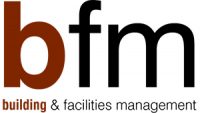Manual handling: are your staff at risk?

In many respects, Facilities Management is a very hands-on industry. FM companies provide the kind of fundamental building and support services required for businesses to function smoothly, and carry these out onsite, on their behalf. These specialist services – whether it be cleaning, maintenance, mail/postal services, setting up offices or accessing comms systems, electrics or utilities supplies – are performed by teams on the ground and, by nature, often involve a high proportion of manual tasks.
It’s vital that those carrying out these tasks are equipped to do so safely and the risk of injury is limited as much as practically possible. There is a very real risk of suffering a Musculoskeletal Disorder (MSD) or injury if an employee’s job role requires them to carry out physical tasks, from repetitive movements, pushing and pulling through to lifting and carrying. And if they aren’t aware of the proper manual handling techniques and the importance of adhering to them, the risk is greatly increased.
In context, recent figures from the HSE show that amongst those carrying out building completion and finishing activities, on average around 15,000 MSDs occur every year – all caused or worsened by their work. Other key FM services such as postal and courier activities saw 8,000 MSDs per year, with electrical, plumbing and other construction installation activities close behind at 6,000 per year.* However, the damage doesn’t end there; potential compensation claims, legal fees, replacement staff and overtime costs when an injury occurs, all add up and can have a tremendous financial impact on a business’ bottom line.
Relevant training, designed to reduce the risk of injury, is the best way to protect workers – and your business. And it’s not just a suggestion, it’s a requirement. Under the Health and Safety at Work etc. Act 1974 and the Manual Handling Operations Regulations 1992, you are legally obliged to provide such training.
Context is key
In order for training to be effective, we believe relevancy is the key to success. A generic, one-course-fits-all approach is an inappropriate and ineffective use of time and available budget. To be effective, training needs to reflect the level of experience of the delegates, the duties required of them and the level of risk they face.
Many manual handling programmes use the same generic examples and loads – lifting a cardboard box, for instance – regardless of the day-to-day activities of the delegates. But looking at the varied nature of tasks carried out by Facilities Management teams and contractors, you’ll soon understand why the same course simply won’t work for everyone.
Different industries deal with different equipment, working environments and loads, so it follows that their training should reflect that. When we deliver training, we utilise the customers’ own loads within their working environments to ensure training is relevant and can be quickly applied as soon as delegates return to work.
We have developed a suite of manual handling training packages to meet every need. From fully comprehensive courses for those most at risk, to inductions and refreshers, relevant training is available to meet any company’s requirements and budget. For those that require certification from the Chartered body for health and safety professionals, IOSH-accredited manual handling courses are also available.
Changing their minds
Remember, it’s not enough to familiarise delegates with examples of good and bad practice and demonstrate how to safely handle loads – they also need to understand why good practice is in everyone’s interests.
To ensure a lasting impact, we target their behaviour and the attitudes at the root of any bad practice. In order to effect and maintain a positive change in the long term, your workforce must recognise the very real possibility that cutting corners, complacency and ignorance could lead to a potentially life-changing injury.
We recommend focusing delegates’ attention on the potential consequences of manual handling injuries and providing hard-hitting, interactive content to encourage delegates to re-evaluate the way they carry out manual tasks – both inside and outside of work.
Facilities Management companies provide vital services to UK businesses. We need to be mindful that the associated physical exertions don’t come at a cost to those at ground level who ensure the smooth running of our country’s facilities on a daily basis.
For further guidance on how to see the benefits of safe manual handling within your business, please call Mentor Training on 01246 555222.
*Source – HSE: Work-related Musculoskeletal Disorder (WRMSDs) Statistics, Great Britain, 2015





